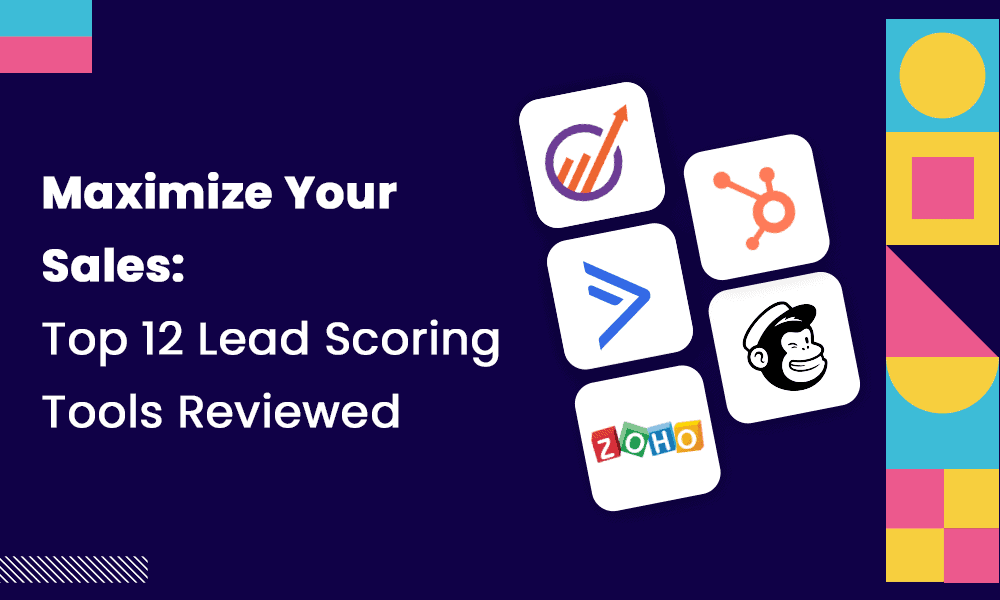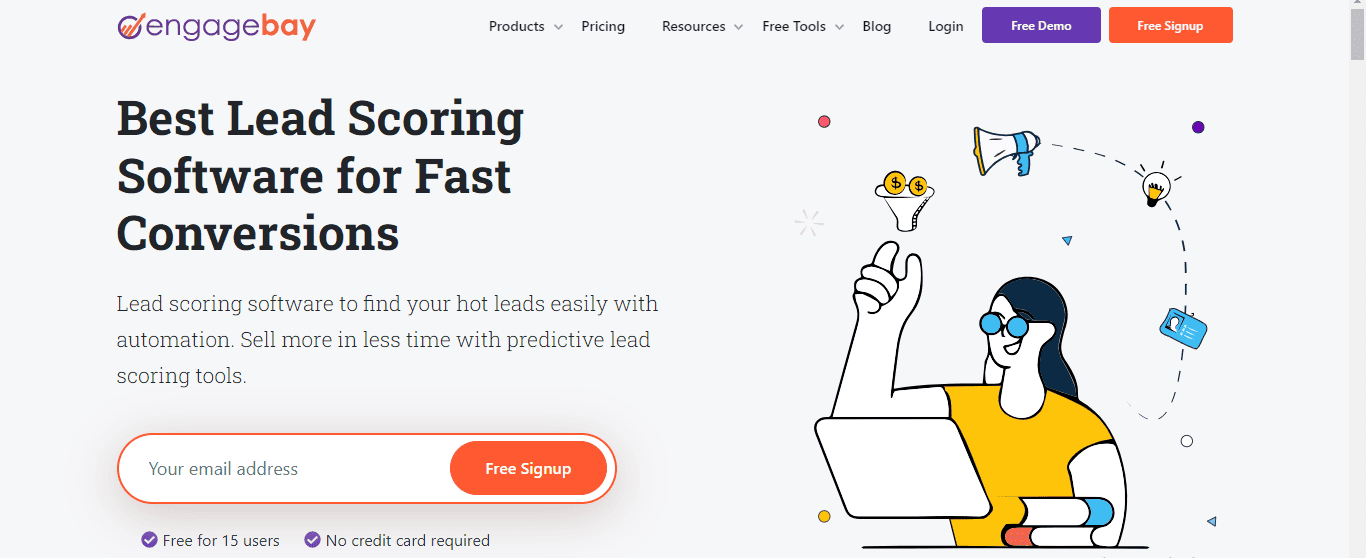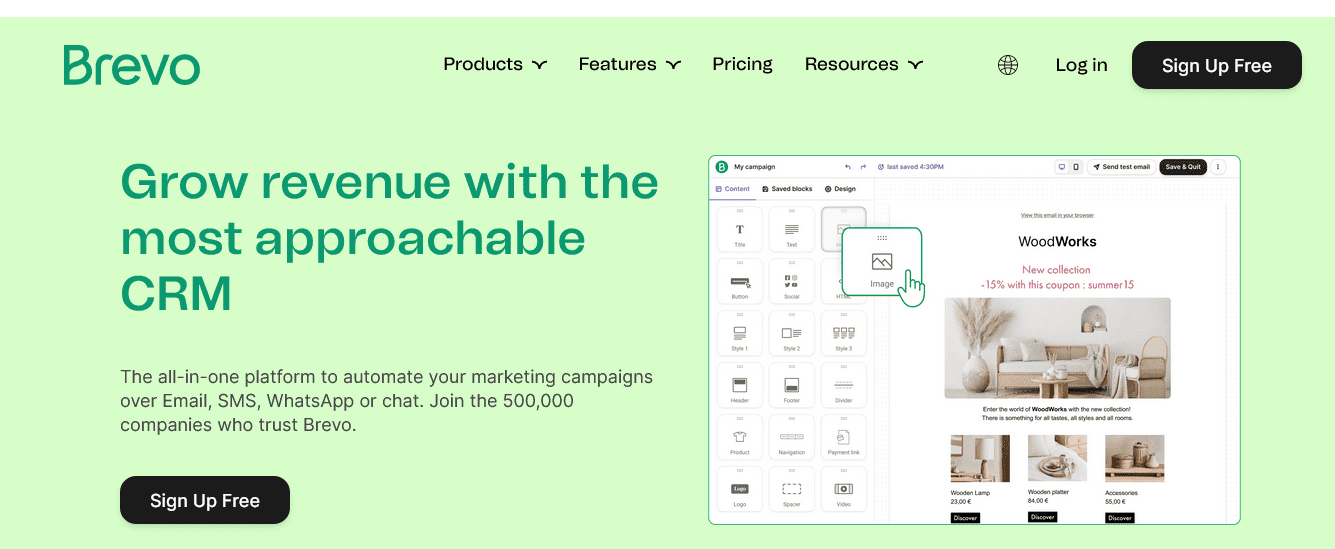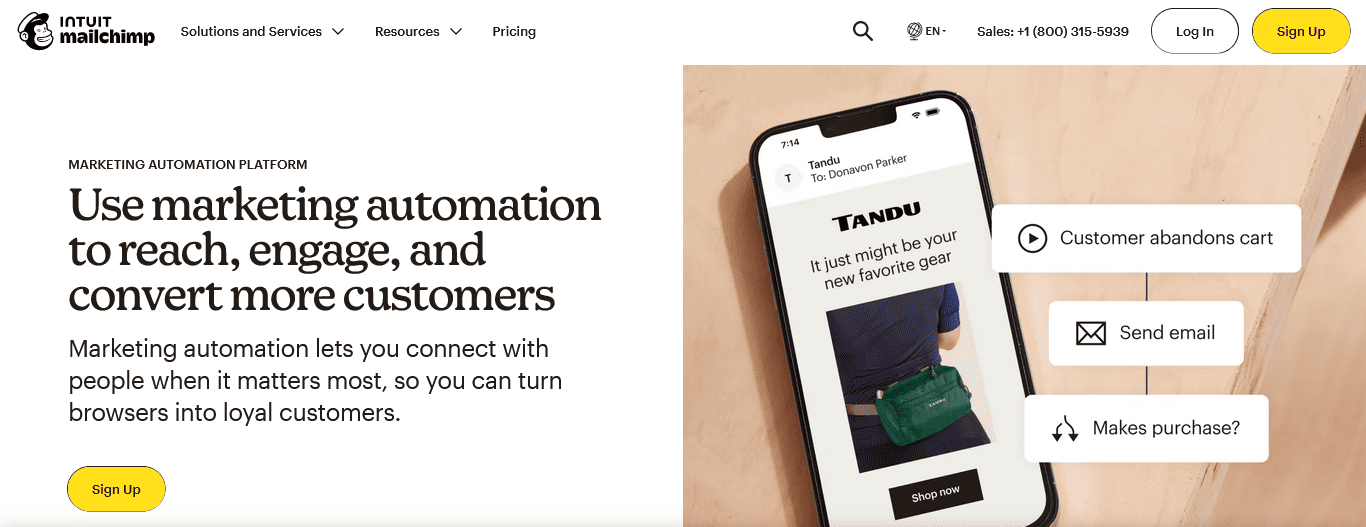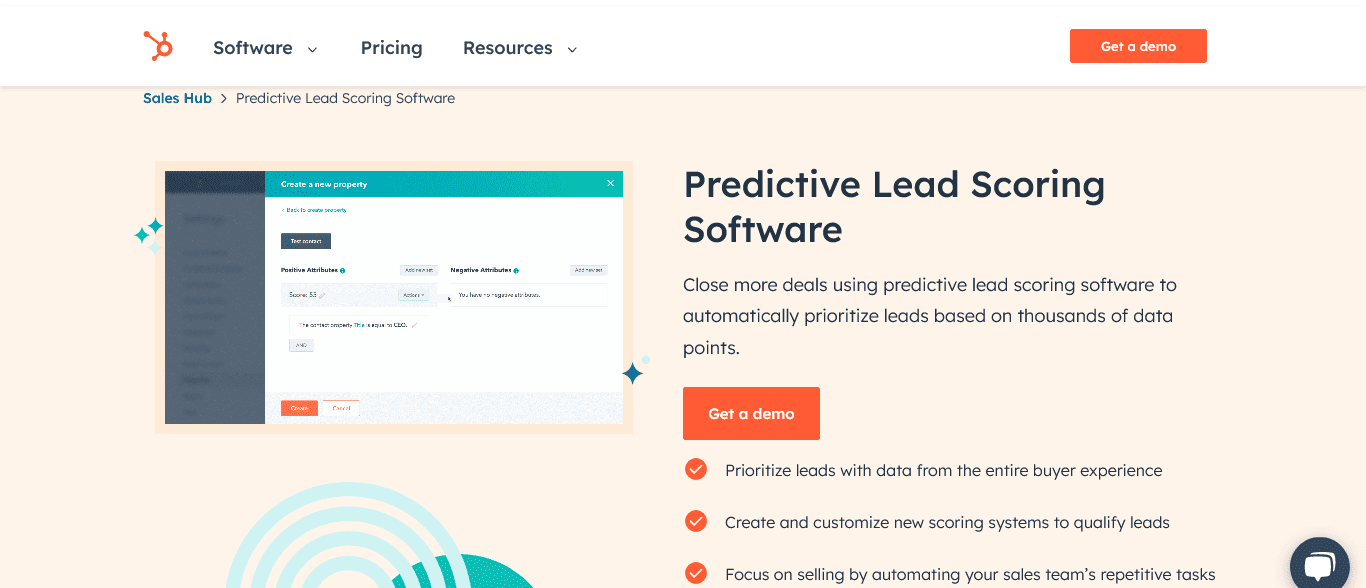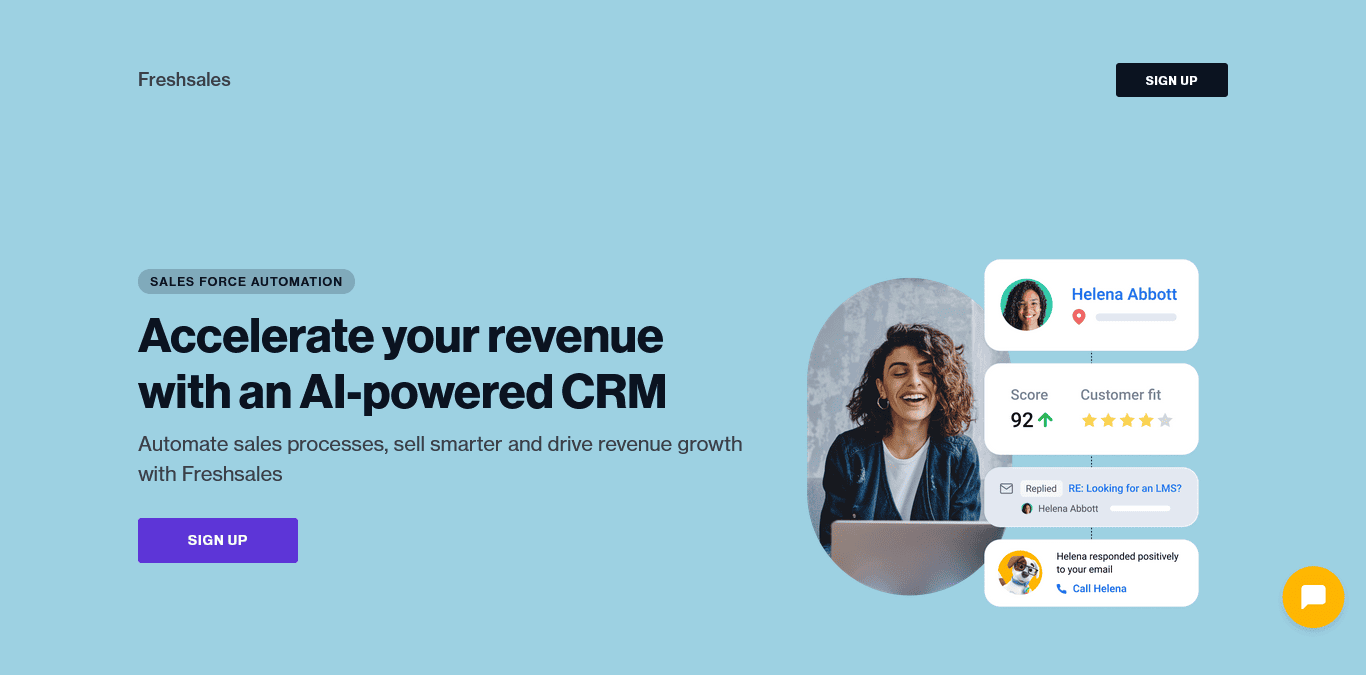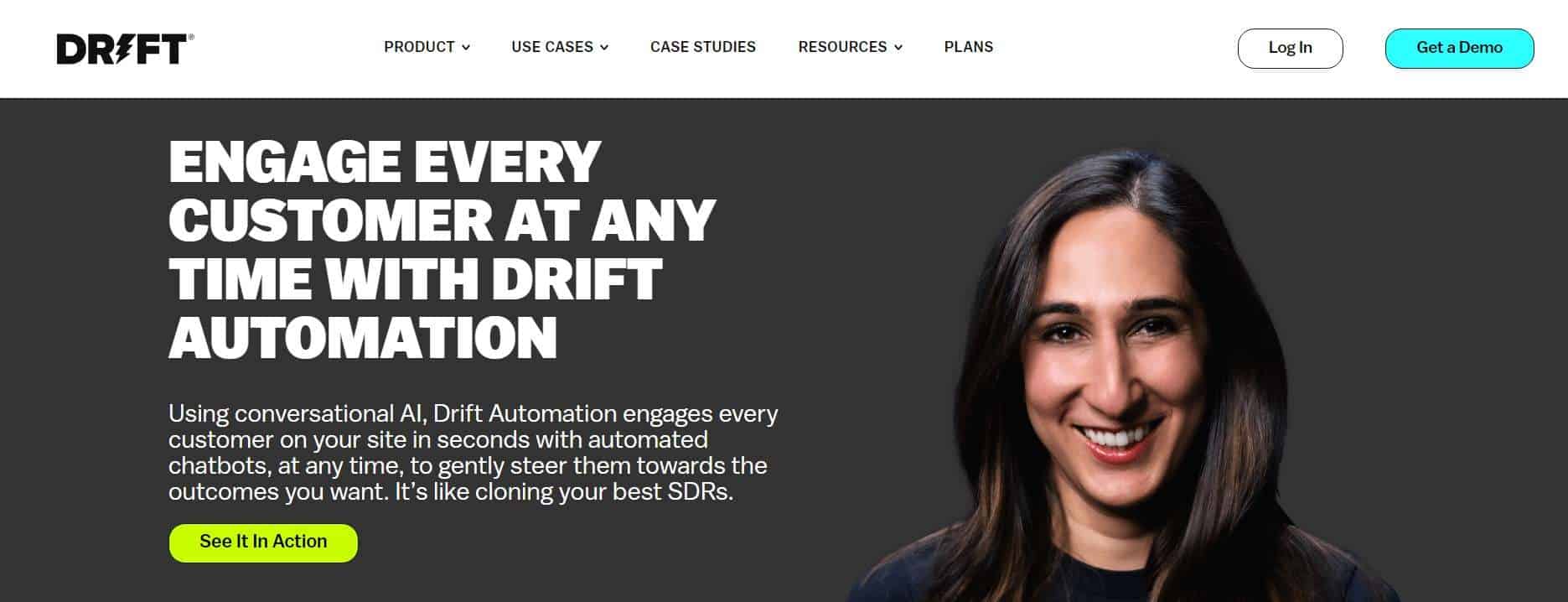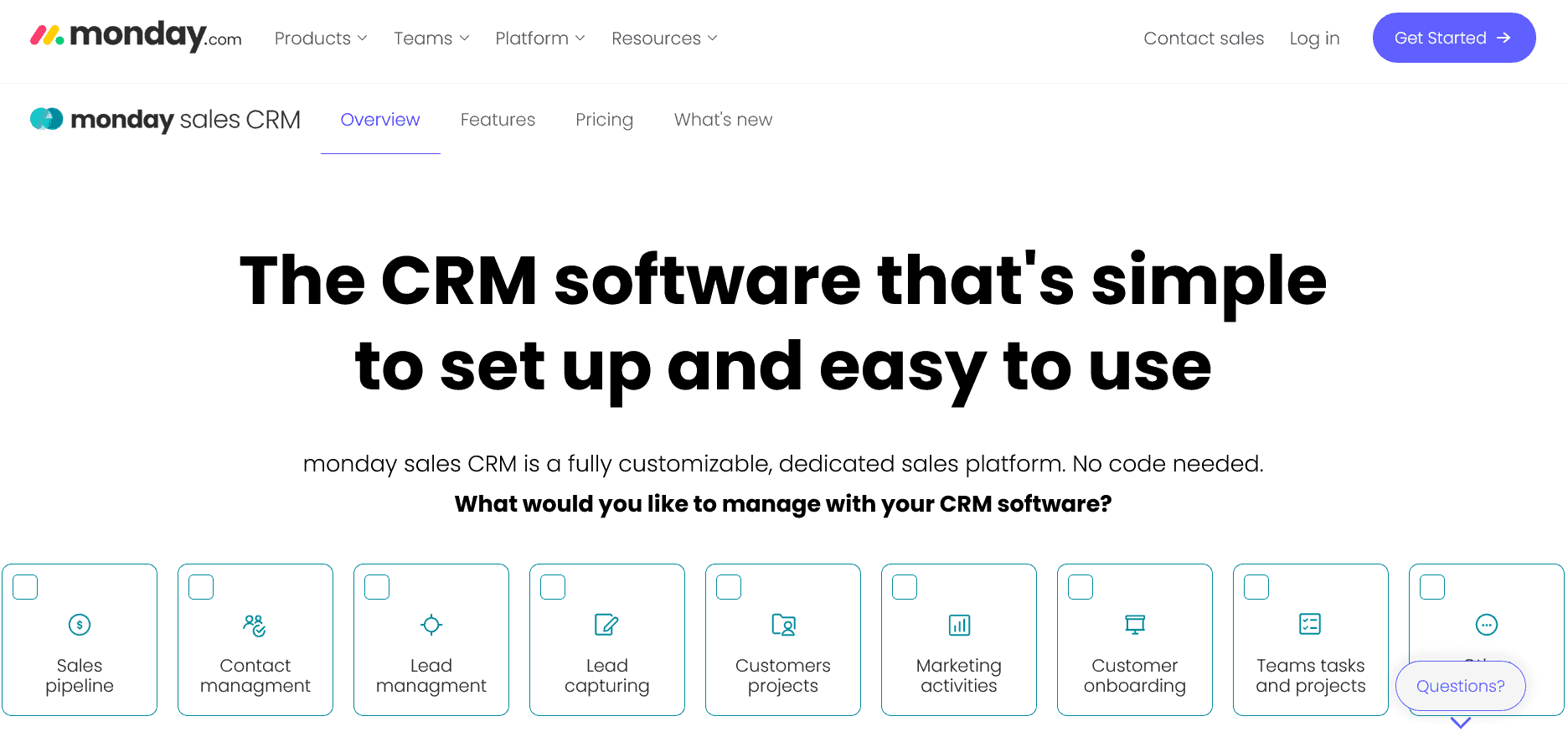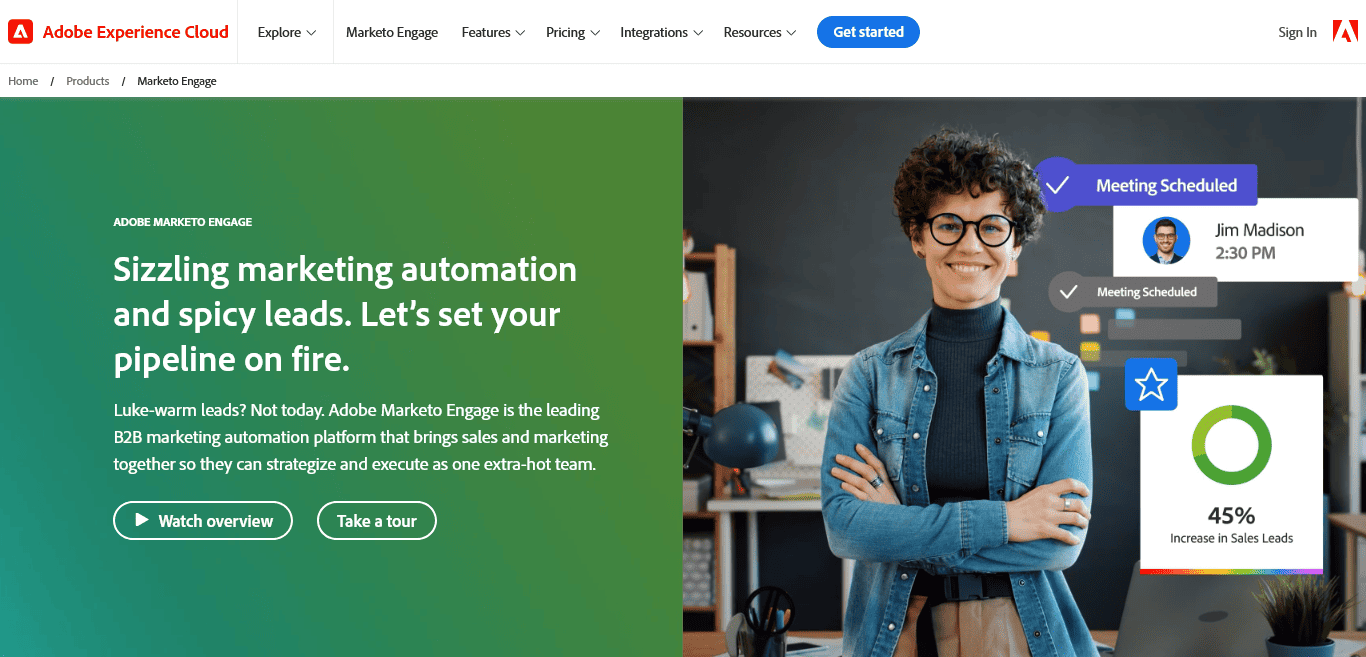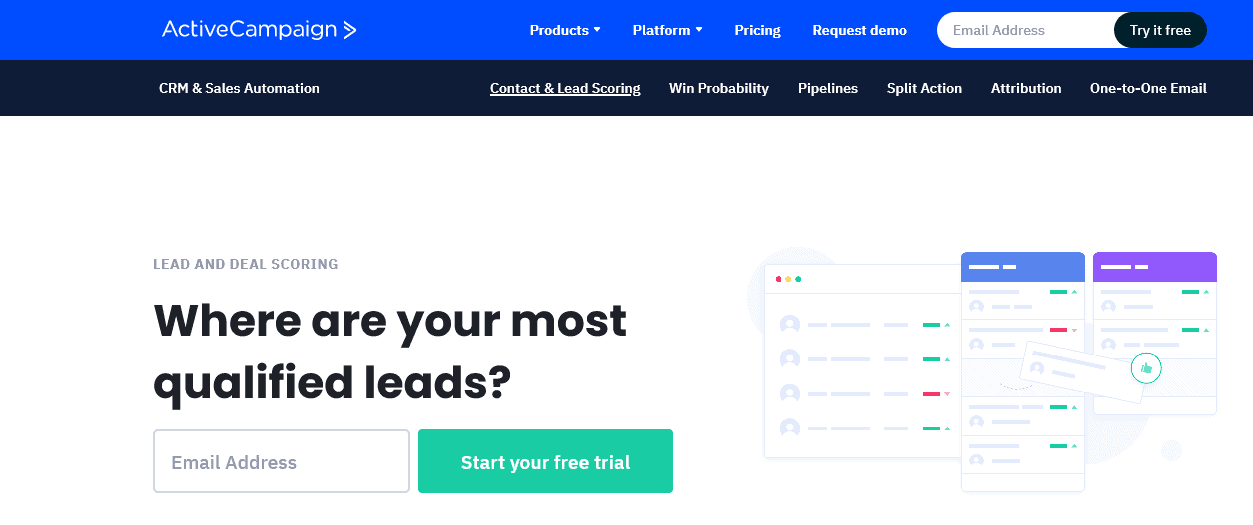Lead generation is much like fishing. You cast a wide net into the sea to get a good catch, only to get the good, the bad, and the ugly. Within this diverse pool, you’ll encounter prospects with varying interest levels. Some will graduate to become marketing-qualified leads and paying customers.
Some may have entered your sales funnel for other reasons like an attractive “bait” and will never progress to becoming paying customers. How do you separate the real gold from the iron pyrite, ensuring you prioritize leads with a higher likelihood of conversion?
This is where lead scoring tools become instrumental in helping you sift through and find your most valuable leads among the mix. As a business owner, marketer, or sales rep, to strategically separate qualified leads, you will have to measure your customers’ interests by assigning priority to each of them based on some predetermined factors.
According to a report, 85% of high-growth companies use lead scoring models to reach their sales goals.
In this article, we cover the following to help you decide on a lead scoring software solution that can help you segment and prioritize leads for better lead nurturing ROI. You’ll see sections on:
- The best lead scoring tools, their pros, cons, and top features
- The importance of lead scoring
- Tips for a successful lead scoring model
- Factors to consider before choosing a lead scoring tool
Let’s get right into it!
Table of Contents
Lead Scoring 101
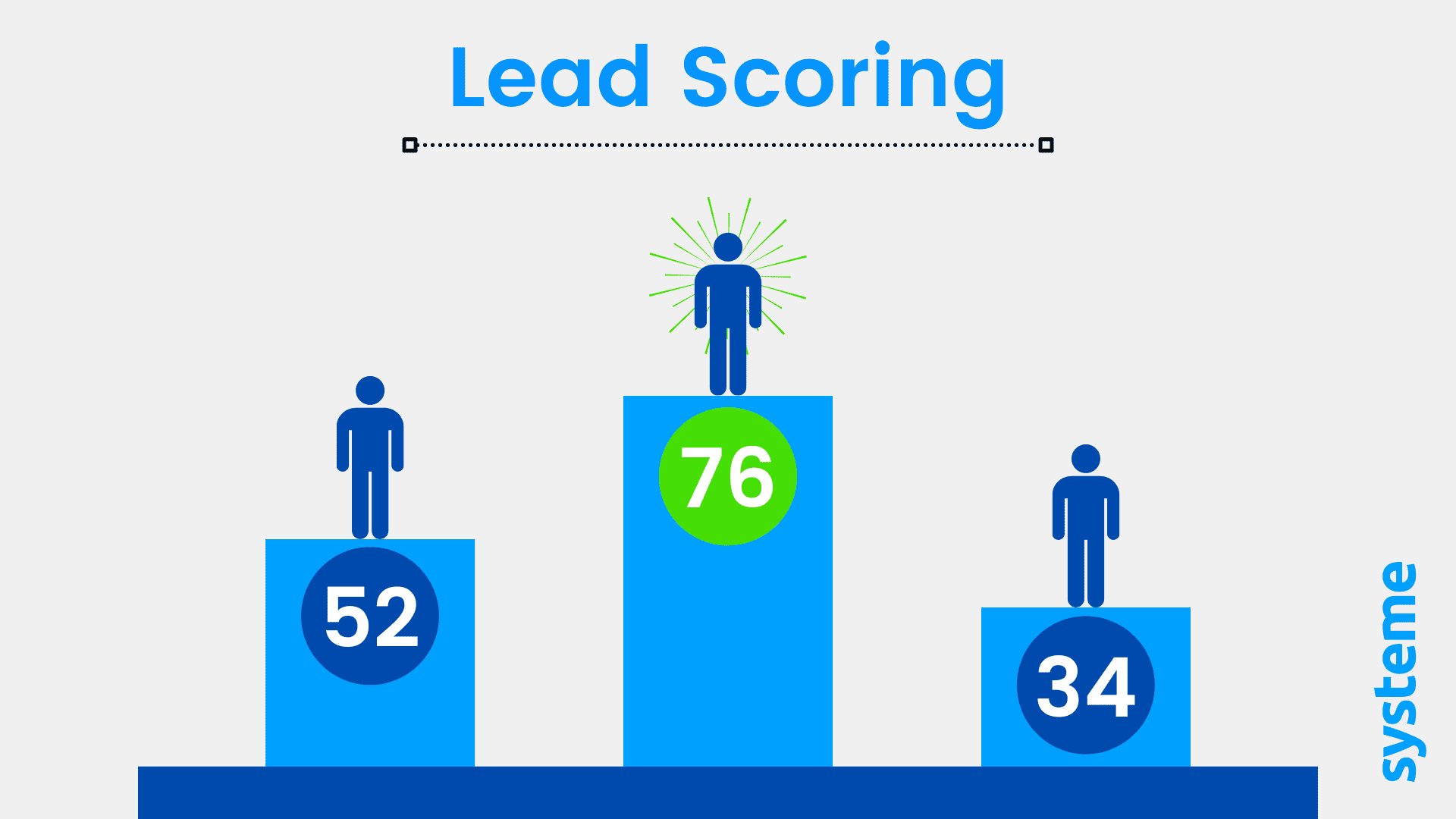
Lead scoring helps you identify hot leads so you can close deals faster by analyzing their level of interest and assigning a numerical score based on predefined criteria.
The score given is based on factors like demographics, website or email interactions, lead source, or CRM data. A high score depicts high interest on the lead’s side.
For example, a director may be given a score of 20 based on demographics. In contrast, an entry-level employee may score five due to their difference in earning capacity for high-end products and services.
Most businesses use lead scoring to prioritize customers, focus their energy on important deals, and save resources.
According to a report,
- Lead scoring is the number one way of focusing on your customers
- 8-in-10 B2B marketers implement lead scoring to prioritize leads
- 75% of businesses have increased conversion rates with lead scoring
- Lead scoring improves the chances of closing a deal by 20%
These statistics prove how useful lead scoring is to every business. Whether it’s a B2B company, SME, or startup venture, lead scoring allows you to focus your time and resources on leads with high potential for conversion.
Choosing The Right Lead Scoring Tool For Your Business
It would be best to consider certain factors before deciding on the lead scoring tool for your business. Here are some of the critical factors to consider.
1. Business goals
Every business has a set of goals that drive its operation. For example, suppose your goal is to rack up good money from high-value customers. Your choice of lead scoring tool should allow you to seamlessly give more weight to leads that exhibit characteristics of those high-value customers according to your ideal customer profile.
2. Automation capabilities
Automation removes the labor of manually entering scores each time a new lead enters your sales funnel, saving time and ensuring uniformity.
It also ensures real-time updates of lead scores based on current interactions and updated scoring models so that the sales and marketing teams can quickly follow high-potential leads with personalized messaging.
3. Budget and pricing
When you consider your budget, you will know what is worth spending on a lead scoring tool.
Compare the prices of the tools you have in mind to ensure they are scalable and align with your business goal. You should also evaluate the tool’s benefits against the cost for a positive return on investment.
4. Flexibility and customization
Your choice of tool for lead scoring should allow for flexibility and customization. This is because your business is unique, and your choice tool needs to be flexible, allowing you to set up your lead scoring system based on your personalized criteria and scoring model.
A flexible lead scoring tool will enable you to adapt and refine your lead strategy as your business evolves.
5. Software reputation and support system
Many tools offer free trials to assess their capability and see if they meet your business needs.
If the tool of choice doesn’t offer a free trial, review websites like G2 and Capterra for what existing customers say about their experience with the software and its features. It also tests the software’s support structure—response time, knowledge base availability, and training resources offered.
Read also: A Guide To Lead Scoring For Your 2024 Sales Goals
12 Top Lead Scoring Tools for Efficient Sales Workflows
Countless tools out there make sense for scoring leads. However, we considered features, pricing, and user ratings for this article. So, the best tools on our list of top lead scoring software (in no particular order) are as follows.
- EngageBay
- Zoho CRM
- Brevo
- Mailchimp
- HubSpot
- Freshsales
- Drift
- LinkedIn Sales Navigator
- Salesforce
- Monday sales CRM
- Marketo Engage
- ActiveCampaign
To give you a bird’s-eye view of the tools, I have made a table containing the unique features, user ratings, and starting prices of these lead scoring tools.
| Lead Scoring Software | Starting Price | Unique Feature | Free Plan | Overall rating G2 |
| EngageBay | $13.79 | Predictive lead scoring, smart lists, and landing page builder | Yes | 9.2 |
| Zoho CRM | $12 | Lead management, analytics, and task management | Yes | 8.0 |
| Brevo | $25 | Personalized sales pipeline, landing pages, and automation | Yes | 9.0 |
| Mailchimp | $6 | Anomaly detection, customizable tags, and predictive segmentation | Yes | 8.6 |
| HubSpot Sales Hub | $18 | Deal and company scoring, user management, and standard contact scoring | Yes | 8.8 |
| Freshsales | $15 | Predictive scoring, sales intelligence, and Freddy AI | Yes | 9.0 |
| Drift | $2,500 | Custom chatbots, Flex routing | No | 8.8 |
| LinkedIn Sales Navigator | Contact sales team | Lead builder, buyer intent detection | No | 8.6 |
| Salesforce Sales Cloud | $25 | Opportunity scoring, lead assignment, and routing | No | 8.6 |
| Monday | $10 | Lead capturing, contact management, and sales forecasting | No | 9.2 |
| Marketo Engage | Contact sales team | Targeting, segmentation, and lead generation | No | 8.2 |
| ActiveCampaign | $29 | Sentiment analysis, sales engagement automation, and automation | No | 9.0 |
Let’s have a detailed look at each tool.
1. EngageBay
The first lead scoring software on this list is EngageBay. It is an all-in-one unified marketing, sales, support, and CRM solution with built-in predictive lead scoring and segmentation tools.
With EngageBay, you can customize how you score your leads based on their activities, locations, and survey responses. You can also track, know who to follow up with, and predict the future behaviors of your actual and potential leads.
Its contact management feature helps you filter leads as you engage with them and segment them into lists to determine the future campaign for them. With its automation feature, you would not have to manually score leads, as it will help you automate the process based on the set predefined criteria.
EngageBay’s lead scoring tool is ideal for SMBs, small and growing B2B companies, eCommerce business owners, solopreneurs, and startups.
Key features
- Lead segmentation: You can categorize leads into segments for personalized and targeted communication
- Predictive lead scoring: Use a scoring model driven by insights from data to qualify your leads
- Automated workflows: EngageBay’s automated workflow can help you with automated responses and nurturing sequences
- Smart lists: Enables you to segment contacts based on lifecycle stages or browsing behavior
- Social suite: Allows you to manage online engagement and launch social media campaigns
- CRM integration: Ensures your lead scoring is synchronized with all your sales strategies for smooth communication between sales and marketing teams
Pricing plans
EngageBay has four available pricing plans – Free, Basic, Growth, and Pro.
- Free: Costs $0.00/month
- Basic: The basic pricing plan costs $13.79/month, billed annually
- Growth: EngageBay’s Growth plan costs $59.79/month, billed annually
- Pro: This pricing plan costs $110.39/month, billed annually
Pros
- Affordable pricing on all plans
- Forms and email editors are easy to use
- Free lead scoring on paid plans
- Responsive customer support
Cons
- Predictive lead scoring is not available in the free plan
- It does not have social software analytics
Rating (G2)
- Overall: 9.2/10
- Ease of use: 9.1/10
- Ease of setup: 9.1/10
Read also: Lead Scoring Strategy to Discover & Prioritize High-Value Prospects
2. Zoho CRM
Zoho CRM is a cloud-based software for businesses of all sizes, helping them score leads based on demographics, behavior, and negative scoring.
As a marketer or sales personnel, you cannot use the same criteria to evaluate and score leads for the various departments of your business. With Zoho CRM, you can access multiple scoring models for your unique needs.
With its performance management feature, Zoho CRM helps you score real-time leads and forecast future behavioral patterns. It has features like automation for automated actions like creating an activity and updating certain fields and lead and deal prediction for checking the likelihood of success for every lead becoming an actual paying customer.
You can also use Zoho CRM to notify your sales department about a high-profile lead automatically.
Key features
- Customization: Use views and filters, layout, and custom components to customize your parameters based on how leads respond to your marketing campaign
- Advanced analytics: Use the obtained data to gain insights and monitor every aspect of your lead scoring cycle
- Lead management: Auto-score your leads based on your rules and track them throughout your sales pipeline journey
- Email marketing: Run personalized email campaigns to target and nurture your generated leads
- Task management: Track conversations, create new tasks, and view the history of every segmented lead
Pricing plans
- Free: The free pricing plan costs $0/month and allows for up to 3 users
- Standard: Costs $12/month, billed annually
- Professional: Starts at $20/month, billed annually
- Enterprise: The enterprise plan costs $35/month, billed annually
- Ultimate: Zoho CRM’s ultimate plan costs $45/month, billed annually
Pros
- Free plan available
- Free trial available on all pricing plans
- Sales and marketing automation is available on all pricing plans
- It has a multi-channel lead scoring
- Mobile app
Cons
- Limited custom fields
- Customer service can be slow
- No lead scoring in the free plan
- No integration feature is available for the free plan
Rating (G2)
- Overall: 8.0/10
- Ease of use: 8.2/10
- Ease of setup: 7.7/10
Read also: Zoho Alternatives: 15 CRM Solutions For Smart Sales Teams
3. Brevo
The third tool on this list, Brevo, is a cloud-based CRM software with lead qualification and scoring capabilities for businesses of all sizes. It is an excellent tool that allows you to assess the level of engagement from your leads.
With Brevo, you can set up a model that shows the conversion potential of all your customers. From contact attributes and CRM to automated workflows, the software has been carefully designed with features that help you set the criteria for scoring leads with a workflow triggered based on specific actions by the potential lead.
Key features
- Personalized sales pipeline: You can customize your workflow by adding or subtracting from the scoring model to match your business requirements. It helps you track sales and boost the company’s growth efficiency.
- Landing pages: Track your leads’ engagement level with designed landing pages and gauge the level of interest. You can also integrate with analytics to track user behavior.
- Automation: Set up automated workflows to nurture your leads based on their score. Leads with high scores might trigger automated campaigns to convert them. Conversely, leads with lower scores will receive tailored content to build their interest.
Pricing plans
Brevo has different pricing plans – Free, Starter, Business, and Brevo Plus.
- Free: The software has a free plan
- Starter: Costs $25/month, billed annually
- Business: Starts at $65/month, billed annually
- Brevo Plus: Customized pricing, contact sales
Pros
- Free plan available
- Reliable email deliverability
- Omnichannel with SMS capabilities
Cons
- Not the best for beginners
- Lacks phone support for entry-level plans
Rating (G2)
- Overall: 9.0/10
- Ease of use: 8.9/10
- Ease of setup: 8.6/10
4. Mailchimp
Mailchimp is a web-based marketing automation software with lead scoring capabilities for SMBs, marketing agencies, and eCommerce businesses. It focuses on email marketing for businesses of all sizes. However, its segmentation feature helps you separate your audience into different lists depending on their ranks in your scoring model.
It also has predictive segmentation that allows you to categorize prospective and existing buyers based on their anticipated behaviors and characteristics. The feature works by analyzing past interactions to identify patterns on how they will likely engage with your product or service.
With Mailchimp, you can monitor customer activities and behavior using the built-in analytics functionality. The data obtained from the analysis is reported and used to improve the lead scoring model.
Key features
- Customer journey builder: Track how prospective buyers interact with your brand using the platform’s pre-built customer journeys or your custom-built journey builder.
- Customizable tags: Create custom labels, such as referrals, new customers, or local customers, to categorize your contacts. It helps you segment your prospective buyers better to ensure perfect personalized communication.
- Anomaly detection: Identify leads or contacts exhibiting behaviors different from their recorded pattern.
Pricing plans
Mailchimp has four available pricing plans – Free, Essentials, Standard, and Premium.
- Free: The free version does not allow lead scoring, but it supports up to 3 contacts
- Essentials: This pricing plan costs $6/month, billed annually
- Standard: The standard pricing plan costs $10/month, billed annually
- Premium: Mailchimp Premium plan costs $175/month, billed annually
Pros
- Behavioral targeting for scoring leads
- Built-in conversion tools to convert leads to sales
- It has a free forever plan
- Ability to segment contacts according to score level
Cons
- The free plan comes with Mailchimp branding
- Users cannot schedule emails with the free plan
- The software is not a cost-effective choice for businesses with large contact list
Rating (G2)
- Overall: 8.6/10
- Ease of use: 8.7/10
- Ease of setup: 8.6/10
Read also: How Does Mailchimp’s Pricing Compare To Its Competitors?
5. HubSpot Sales Hub
HubSpot Sales Hub is an all-in-one automation software offered on the HubSpot platform alongside its marketing and service hub. The software focuses on helping you close more deals using predictive lead scoring to automatically prioritize leads based on data points.
If you are a growing business, its automation feature can help you reduce the workload in lead scoring. It also uses machine learning to walk through the chunks of customer data, enabling you to predict buying intent.
The software also allows you to toggle between traditional and predictive scoring, depending on your preference and business requirements. In addition, when upselling, cross-selling, or broadening to a larger audience, the HubSpot custom scoring system allows you to create up to 25 scoring systems for a customized approach to lead qualification.
Key features
- Standard contact scoring: Use rules-based scoring criteria to focus your outreach on a HubSpot data point. Make use of the scores to segment your contact lists and trigger automation.
- Sales analytics: Make use of fully customizable out-of-the-box reports to edit your reports and gain insight into your sales pipeline’s overall health
- Forecasting: Create detailed and customized forecasts based on obtained data from your contact database.
- Deal and company scoring: Score deals, leads, and companies based on your custom criteria.
- User management: Keep in touch, add new users, deactivate, or remove existing users that do not meet your threshold.
Pricing plans
HubSpot Sales Hub has four available pricing plans – Free HubSpot CRM, Sales Hub Starter, Sales Hub Professional, and Sales Hub Enterprise.
- Free HubSpot CRM: Costs $0/month, billed annually. It does not allow more than one user
- Sales Hub Starter: This pricing plan costs $18/month, billed annually. Allows for up to 2 users/month
- Sales Hub Professional: Starts at $450/month, billed annually. It allows five users/month
- Sales Hub Enterprise: Costs $1,500/month, billed annually
Pros
- Each pricing plan comes with a free trial (7 days)
- The platform is easy to use
- The marketing hub operates in sync with the Marketing and Service Hub
Cons
- The learning curve can be steep
- The scoring feature is only available in the premium plan
- There is no A/B testing feature in their basic and Pro plans
Rating (G2)
- Overall: 8.8/10
- Ease of use: 8.7/10
- Ease of setup: 8.4/10
Read also: 11 Lead Scoring Best Practices to Get Better Sales Results
6. Freshsales
The sixth lead scoring tool on our list is Freshsales. It is a leading customer relationship management software that is best for B2B companies, SaaS, eCommerce, and tech-related businesses. The software has a built-in AI-based lead scoring tool that uses clear and precise data to rank your sales leads.
Freshsales allows you to customize your lead scoring rules by lead property and interactions, email application, and web. You can automatically add points to leads who meet your buyer persona to prioritize the leads you should be speaking to. With Freshsales, you can also track the week-on-week increase or decrease in the lead score and gain insights concerning the factors that prompted the change in score.
From its automation feature that automatically adds score to predictive lead scoring provided by the AI assistant, Freddy AI, to sales forecasting for predicting performance and targeting high-intent deals, Freshsales is a superb tool for lead scoring.
Key features
- Sales intelligence: Make more intelligent decisions with in-depth analytics and AI for your contact scoring, sales forecasting, and the best action to engage in.
- AI assistant: Use the in-built Freddy AI feature to get actionable insights for better engagement.
- Customization: Modify your CRM to fit the business by using layout customization to capture relevant information for tracking a prospect throughout their buying journey.
- Predictive scoring: Identify leads in your pipeline that are most likely to close deals with you
- Lead management: Use the tool’s drag-and-drop to track leads through the sales buying process
Pricing plans
Freshsales has four pricing plans – Free, Growth, Pro, and Enterprise.
- Free: The free version does not allow lead scoring, but it supports up to 3 contacts
- Growth: This pricing plan costs $15/month, billed annually
- Pro: This pricing plan costs $39/month, billed annually
- Enterprise: This pricing plan costs $69/month, billed annually
Pros
- It allows you to filter deals in the pipeline
- AI-powered lead scoring on all paid plans
- Intuitive mobile app
- Custom dashboards and reports
Cons
- Reporting is not available on the free plan
- It is cumbersome to export data
- The growth plan does not have the forecasting feature
- Customer support needs improvement
Rating (G2)
- Overall: 9.0/10
- Ease of use: 8.5/10
- Ease of setup: 8.8/10
Read also: 15 Freshworks Alternatives for Great Customer Support
7. Drift
Drift is a cloud-based conversational and marketing software that uses chatbots and automation to engage your web visitors, converting them into qualified leads based on score rules.
With its AI-powered chatbots, you can engage prospective leads and gather information about their intent, needs, and preferences. Also, Drift uses AI-powered lead scoring through machine learning algorithms to analyze patterns and identify leads with high conversion potential.
The tool has a dynamic outlook that makes it easy to adjust your scoring criteria to fit your marketing strategies for relevancy and on-point ranking of your leads.
Key features
- Custom chatbots: Engage visitors in a conversation 24/7 to qualify and convert prospective buyers to actual buyers.
- Flex routing: Route newly generated leads in real-time to the right department in your organization.
- Audiences: Uncover visitors on your website, where they came from, and what they are interested in to optimize your website and create outstanding experiences.
- AI engagement score: Assign AI-based engagement scores to leads based on interactions with your website and emails. It helps you shortlist the most engaged leads that are likely to convert.
Pricing plans
Drift has three unique pricing plans – Premium, Advanced, and Enterprise.
- Premium: This pricing plan costs $2,500/month, billed annually.
- Advanced: Contact the sales team for a quote for this price plan.
- Enterprise: Custom pricing
Pros
- Intuitive user interface
- Drift has a plethora of integrations
- It has a wide variety of tools for the generation and qualifying of leads
Cons
- Pricing plans are expensive
- It cannot be used for multiple teams unless you have the Enterprise plan
- The chatbot builder is subpar
- Messaging solutions are not available for its marketing channels
Rating (G2)
- Overall: 8.8/10
- Ease of use: 8.7/10
- Ease of setup: 8.4/10
8. LinkedIn Sales Navigator
LinkedIn Sales Navigator is a sales tool offered by LinkedIn and is designed to help sales professionals build and nurture relationships with potential leads and prospects.
Its advanced search capabilities make finding prospects and receiving recommendations based on any target account easy. You can also save leads and track their activities. It helps you stay informed, identify key moments, and contribute to a unique form of lead scoring.
Professional services in B2B like accounting, marketing, and software and technology can leverage the software to connect with potential clients and nurture relationships.
Key features
- Lead builder: Make use of advanced filters to narrow down your search for potential leads with criteria like job title, company, and more
- Buyer intent detection: Identify signals that indicate a potential buyer’s interest by monitoring online activities such as content interactions and website visits
- Connectivity data: Identify leads associated with companies connected to your business network on LinkedIn and prioritize them
Pricing plans
LinkedIn Sales Navigator has three unique pricing plans – Core, Advanced, and Advanced Plus.
- LinkedIn Sales Navigator’s pricing plans can not be seen readily on their website. However, you can get a quote by contacting their sales department.
Pros
- Free trial on all plans
- You can access the user’s profile from the contact, account, or opportunity pages in the CRM
Cons
- No free plan is available
- Plan upgrades can be expensive
- There is no integration for leads, contacts, or opportunities
Rating (G2)
- Overall: 8.6/10
- Ease of use: 8.6/10
- Ease of setup: 8.8/10
Read also: The Top 10 Sales Intelligence Tools and What They Do Best
9. Salesforce Sales Cloud
The ninth tool on this list, Salesforce Sales Cloud, is an AI-powered SaaS lead scoring tool that can be used to close deals, rank leads, and analyze the behavior of leads.
Its AI, Einstein AI, helps you analyze your data to find leads more likely to convert to actual-paying leads via predictive lead scoring. With its lead management feature, you can track, filter, and qualify prospective customers based on their interaction and interest in your product.
You can grow your revenue and profits by automating lead qualification and auto-scheduling to pass leads directly to your sales department from your website.
From its contact management feature to lead management to customization, you can manage contacts, track sales deals, manage tasks and events, harvest leads, and track performance with your comprehensive, customizable scoring model.
Key features
- Account, contact, lead, and opportunity management: Manage the entire sales cycle from tracking sales leads and opportunities to managing account and individual contact details
- Opportunity scoring: Use the built-in AI to analyze your data and predict which opportunities will likely close
- Lead assignment and routing: Route hot leads to the right representatives and view the impact of your marketing activities on your sales pipeline
- Customizable reports and dashboards: Make more informed, consistent decisions with real-time configurable reports and dashboards
Pricing plans
Salesforce Sales Cloud has five unique pricing plans – Starter, Professional, Enterprise, Unlimited, and Unlimited+.
- Starter: Costs $25/month, billed annually
- Professional: Starts at $80/month, billed annually
- Enterprise: This pricing plan costs $165/month, billed annually
- Unlimited: Costs $330/month, billed annually
- Unlimited+: This pricing plan costs $500/month, billed annually
Pros
- Extensive customization options
- Powerful reporting feature
- Free 30-day trial
- Easy to understand and manage
Cons
- No free plan is available
- Lead scoring cost extra
- Plan upgrades can be expensive
- Lead scoring is not available on the starter, professional, and enterprise plans
Rating (G2)
- Overall: 8.6/10
- Ease of use: 8.0/10
- Ease of setup: 7.4/10
10. Monday
Monday sales CRM is a centralized tool that allows you to organize your leads, track new ones, and monitor your progress. This software offers features like customizable pipelines that finetune your sales cycle, account and contact management that allows you to store unlimited contacts and accounts in one centralized place to view details, and automation that helps you to score leads automatically based on your set criteria.
Monday.com is a notable tool for scoring your leads and understanding their behavior.
Key features
- Contact management: Access and manage your potential and existing leads from anywhere and send emails on the go to help you close deals faster.
- Lead capturing: Capture leads by integrating with your existing tools or adding a lead capture form.
- Sales forecasting: Use the forecasting feature to set the deal value and the close probability. Manage, track, and adjust your predicted sales revenue.
- Email tracking & automation: Set automated rules that notify when a lead receives, opens, or replies to your personalized email.
Pricing plans
This lead scoring software has four pricing plans – Basic, Standard, Pro, and Enterprise.
- Basic: The basic pricing plan costs $10/month, billed annually.
- Standard: It costs $14/month and is billed annually.
- Pro: This pricing plan costs $24/month, billed annually.
- Enterprise: Custom-priced
Pros
- Excellent customer support
- Highly customizable
- Forever free plan available for up to two persons
- Easy to use and organize
Cons
- Pricing structure can be confusing
- Limited marketing tools
Rating (G2)
- Overall: 9.2/10
- Ease of use: 9.0/10
- Ease of setup: 8.5/10
Read also: Pipedrive vs Monday: Which Is Better? A Side-By-Side Review
11. Marketo Engage
Although it is the second-to-the-last tool on this list, Marketo Engage is a leading B2B marketing automation platform that brings sales and marketing together to strategize against lukewarm leads.
With its integration with Salesforce, you can ensure that your lead scoring process is synchronized with your sales team’s efforts. You can also use its lifecycle tracking to track the entire lead lifecycle from lead generation to the conversion of leads to actual paying customers.
Marketo Engage’s robust reporting and analytics allow you to assess the performance of your scoring models and gain insights into how well your criteria align with lead conversion.
Key features
- Targeting: Target and retarget lead and account-based audiences across marketing and paid media outlets using fit, intent, engagement, and CRM activity to reach customers with excellent accuracy.
- Segmentation: Use Marketo to create and refine your leads in real-time to deliver hyper-targeted and dynamic content that will increase your conversion rate.
- Lead generation: Use the predictive power of its AI to deliver content that will capture prospective leads
Pricing plans
Marketo Engage has four user pricing plans – Select, Prime, Ultimate, and Enterprise.
Marketo Engage’s pricing plans can not be seen readily on their website. This is because Marketo Engage is made for huge companies with hundreds of users. Based on your business needs, you can get a quote by contacting their sales department.
Pros
- Easy and intuitive to use
- Great Salesforce integration
- It is easy and quick to setup
- The software has great customer support and community
Cons
- Poor landing page builder and form builder
- Steep jumps in pricing
- No free plan is available
Rating (G2)
- Overall: 8.2/10
- Ease of use: 7.2/10
- Ease of setup: 6.6/10
12. ActiveCampaign
ActiveCampaign is a popular marketing software that caters to businesses of all sizes with its advanced automation, analytics, and reporting features. The tool has many other features that make it robust and sometimes complex for companies that want a simple email marketing tool.
Its contact scoring feature is used to prioritize leads based on score values. On ActiveCampaign, scores are added or subtracted based on contacts meeting preset conditions. It also allows for static scoring (one score assigned irrespective of how many times they match your rules) or dynamic scoring (scores assigned each time a contact meets your preset conditions).
Key features
- Segmentation: Use this feature to categorize and group contacts based on your chosen criteria.
- Account & deal management: Organize your leads into accounts or companies and track interactions holistically at the account level. Use deal management to assign scores to deals based on criteria like deal size and probability of closure.
- Sentiment analysis: Determine whether leads are expressing positive and negative interactions. Positive sentiments for a high likelihood of conversion and negative sentiments for a lower likelihood.
- Sales engagement automation: Monitor your leads and get to know the pages they visit, the emails they open, and which links they click.
Pricing plans
ActiveCampaign has four user pricing plans – Lite, Plus, Professional, and Enterprise.
- Lite: The Lite plan costs $29/month, billed annually.
- Plus: This pricing plan costs $49/month, billed annually.
- Professional: The professional plan costs $149/month, billed annually.
- Enterprise: Customized pricing based on business needs.
Pros
- It is easy to use with very flexible integrations
- High deliverability with warming and spam testing features
- Top analytics and reporting for customer data and insights
- Powerful automation
Cons
- It does not have an advanced CRM feature
- The free trial option is limited to 100 contacts and 100 emails
- No free plan is available
- Contact (lead) scoring is not available in the Lite plan
- The tool’s templates are pretty basic in terms of design
Rating (G2)
- Overall: 9.0/10
- Ease of use: 8.4/10
- Ease of setup: 8.2/10
Read also: 11 of the Best ActiveCampaign Alternatives
Best Practices for Effective Lead Scoring
There’s more work to do after choosing the suitable lead scoring tool for your business. Here are some of the best practices for ensuring successful lead scoring.
1. Build multiple lead scoring models
A good number of benefits come with having more than one model for scoring your leads. The idea behind creating multiple lead scoring models is so that you can understand your buyer’s persona for an optimized approach in sales prioritization.
For instance, if you own a company offering more than one product, it is understandable to have different models to get a clear picture of customers’ interest rates for each product.
Building multiple scoring models helps you, as an organization with one product, analyze and validate various assumptions about your ideal customer profile (ICP). This further allows you to employ a data-driven approach to help your sales team achieve optimal results.
2. Integrate with your CRM and marketing automation platforms
The good news about marketing and CRM automation tools is that they reduce manual efforts involved in sales and marketing.
FinancesOnline says marketing automation drives sales productivity by 28% and 33% higher revenue growth than companies without lead scoring.
Lead scoring takes time, and you can get distracted from your sales goal. Still, with integrated automation software to help your lead scoring, you can be sure to have an automated process that updates customers’ scores as they interact with you.
Using automation platforms increases your efficiency in sales as much as it gives you real-time insights for your marketing workflows.
3. Make use of negative lead scoring
To use negative scoring in your lead scoring model, assign negative points for every unsatisfying action leads take.
When you give negative scores for actions like inactivity, incorrect information, unsubscribing from emails, and negative social media interactions, your scores are balanced, and you get to know your customer’s actual level of interest.
Using negative scoring helps you remove leads that have interest but are not responsive.
4. Set a clear sales qualification threshold value
As you now know, scoring leads aims to, at a particular point, move them from the category of potential customers to actual paying customers. You set a defined point (threshold) for your business’s sales department.
With a clear threshold value for your game, you will know when to move a customer because they must have reached and crossed the set threshold.
Thresholds are different for every business, and there’s no guarantee that you will get it right on your first try, but it can be expedited by getting feedback from your sales team and current customers.
5. Test, refine, and update your model regularly
Times, seasons, and behaviors change. This means that the level of importance that you give to a criterion may fade because of the change in people’s behavior.
You should check the way you score leads frequently to see if there is any update that you need to incorporate. Refining your model to fit the current demographics, weights, and thresholds to optimize performance is acceptable.
Read also: Lead Scoring Model to Close More Deals
Wrapping Up
We have looked at the top lead scoring tools and their features to level up your lead capturing, generation, nurturing, and conversion process. To help you decide which software to use, we showed you their key features, pros and cons, pricing, and user ratings.
So, whether you are a startup, a small business, a SaaS, or a B2B company, there’s a lead scoring tool for you.
EngageBay is an all-in-one marketing and CRM platform offering predictive lead scoring with unique features to help you rank potential leads, filter high interest from low interest, and prioritize leads that will likely convert to buying customers. The best thing is that it’s priced for SMBs, so you get marketing and CRM both at the price of one!
If you’d like to try it for free, just sign up.
